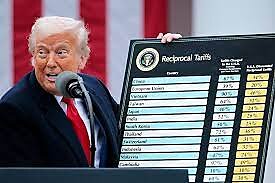Neal McCluskey
A $5 billion scholarship tax credit is a part of the budget reconciliation bill just introduced in Congress. As a member of the Educational Freedom Supporters of America in good standing, few would doubt that I think school choice is an excellent thing. And I certainly understand the desire to take it nationwide via one big, beautiful, federal bill. But doing that would not ultimately be a beautiful thing, for four major reasons:
It is unconstitutional: The Constitution gives the feds only specific, enumerated powers and all others are with the people or states. Education is nowhere among those powers, which means Washington has no authority to push school choice nationally, including through the tax code.
It threatens one-stop shopping to regulate private education: Federal choice will start to get private schools nationwide connected to money associated with the federal government. A tax credit is not a voucher—money directly from the government—and is less prone to regulation, but it still carries rules. And more rules could be added as time goes on, including by future federal policymakers who like unionized workforces, student bathroom choice, or other policies many current choice supporters might not like. Leaving school choice to 50 different states diffuses the regulatory threat.
The states are doing very well: Texas just passed a $1 billion school choice program, joining a huge choice boom in recent years and getting the country to the point where more than half of school-aged kids are eligible for private choice programs. Alas, some supporters of the federal tax credit have looked at this and lamented that some states, typically blue ones like New York, have not adopted choice, and they want an end run around those states. Connected to point number one, that would violate federalism—the feds do not get to bypass states just because some people dislike those states’ policies.
The tax code is already complicated: We do not need yet another tax credit added to a highly complex federal tax code.
The good news is that there are some places where the federal government can, constitutionally, promote school choice: in Washington, DC itself, for military families, and for families served by the Bureau of Indian Education.
It should focus on those families and otherwise leave choice programs where they belong: the states.







